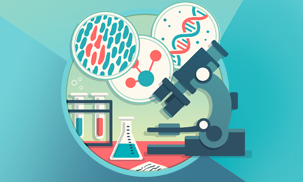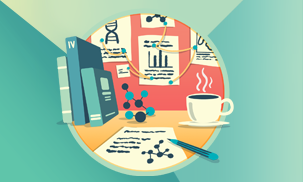
Wet Lab
We design experiments in molecular cancer biology to model the process of cancer initiation (oncogenesis). Our aim is to trace DNA and RNA trajectories at cellular resolution and quantify necessary and sufficient early conditions for cancer to occur. We closely collaborate with experimental biologists on both designing and performing the experiments, throughtout the data generation process.
More ›

Dry Lab
1. Cancer biology: We design and/or apply computational methods to analyse and predict (i) mutational (DNA) interactions, and (ii) transcriptional (RNA) trajectories, during cancer initiation
2. Population biology: We develop causal (non-)parametric stastitical and machine learning techniques for applications to large-scale biomedical data, such as scRNA-seq and the UK Biobank.
More ›

Teaching
1. Causality in Biomedicine: Aimed at biologists, computer scientists and more broadly researchers from quantitative backgrounds. Two main topics of (i) Causal Effect Estimation and (ii) Causal Discovery are covered, together with biomedical applications.
2. PhD projects (contact)
3. MSc projects (contact)
4. BSc summer projects (contact)
More ›
Addressing challenges in modern quantitative biomedicine requires working across different disciplines and bringing in knowledge from various fields. We collaborate closely with experts from experimental biology, computational biology, mathematics, physics and machine learning. Simultaneously creating experimental designs to generate data whilst developing quantitative methods in tandem to derive meaning from the data, drives research & training in our group.Ava Khamseh, Group Leader/Lecturer in Biomedical AI